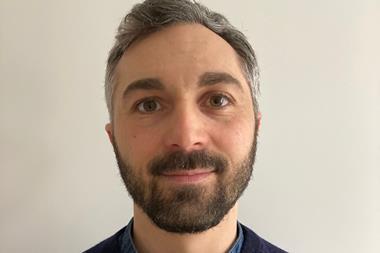The German Federation of Chemical Employers’ Associations (BAVC) has found common ground with the trade union IGBCE to potentially sign the first industry-wide social partner model for occupational pensions.
The social partners have agreed on key points for the introduction of the social partner model by the middle of this year, IGBCE said in a statement.
The trade union is known to represent the interests of workers in the mining, chemical and energy sectors, but its members are also employed in the glass, rubber, ceramics, plastic, leather and paper sectors.
Until the end of June BAVC and IGBCE will work out rules for a collective bargaining agreement to start a pure defined contribution (DC) – or reine Beitragszusage – scheme for new pension promises for employees.
The social partners and R+V Versicherung – one of the largest insurers in Germany – would use the Chemie Pensionsfonds as a pensions vehicle for industry-wide social-partner pensions, BAVC said.
With the Chemie Pensionsfonds as pensions vehicle, and the pure DC scheme, the social partners also aim to offer new employees a pension product with “good opportunities for return”, while at the same time avoiding liability risks for companies in view of the ongoing low-interest-rate environment, it added in the statement.
The Chemie Pensionsfonds will continue to run existing contracts under already agreed conditions, adding the new social partner model to a portfolio of occupational pension arrangements.
The social partner model has so far not been implemented in Germany despite the law to strengthen occupation pensions – Betriebsrentenstärkungsgesetz – allowing pure DC schemes being in place for a few years now.
The insurer Talanx and the union Ver.di had successfully concluded negotiations to start the country’s first social partner model for occupational pensions in July last year, but the financial supervisory authority BaFin has not yet given its go-ahead because of a legal issue.
The social partner model would make company pension schemes more attractive and would open up opportunities for investments with higher returns, IGBCE said.
Under the social partner model, the employer pays a 15% allowance on the deferred compensations of employees and a 5% security deposit as compensation for the cessation of an employer’s liability.
Bridging rising inflation
Under the latest agreement between BAVC and IGBCE, employees in the chemical and pharmaceutical industries will receive a one-off “bridging payment” of €1,400 by the end of May, with trainees receiving €500, to cushion the impact of the inflation on wages.
For companies facing economic difficulties, the payment is cut to €1,000. The agreement applies to 1,900 companies and 580,000 employees. BAVC and IGBCE will continue negotiations on wage increases in October this year.
Inflation in Germany spiked by 7.3% year-on-year in March, and increased by 2.5% from February, the highest level recorded since 1981, according to the Federal Statistical Office – Statistische Bundesamt.
The Consumer Price Index (CPI) has also skyrocketed as the prices of natural gas and mineral oil products have been rising since the beginning of the war in Ukraine, and because of delivery bottlenecks, it added.
In February the price of imported energy rose by 129.5% in Germany compared with the same month the previous year, while the price for energy produced in Germany went up by 68%, and by 22.5% for the energy used by households, the Federal Statistical Office added.
BAVC and IGBCE have also decided to donate €1m to integrate refugees from Ukraine into the labour market, on a 20% supplement for night shifts, and to invest €3m in AusbildungPlus, a programme for trainees with special needs.
The latest digital edition of IPE’s magazine in now available

















